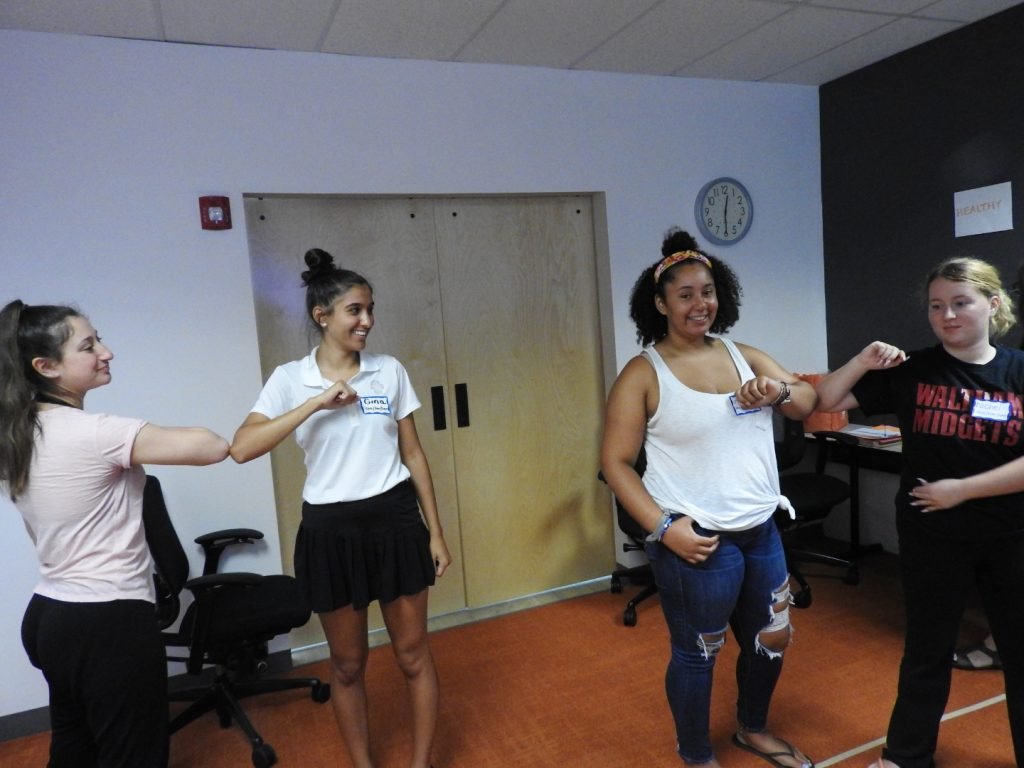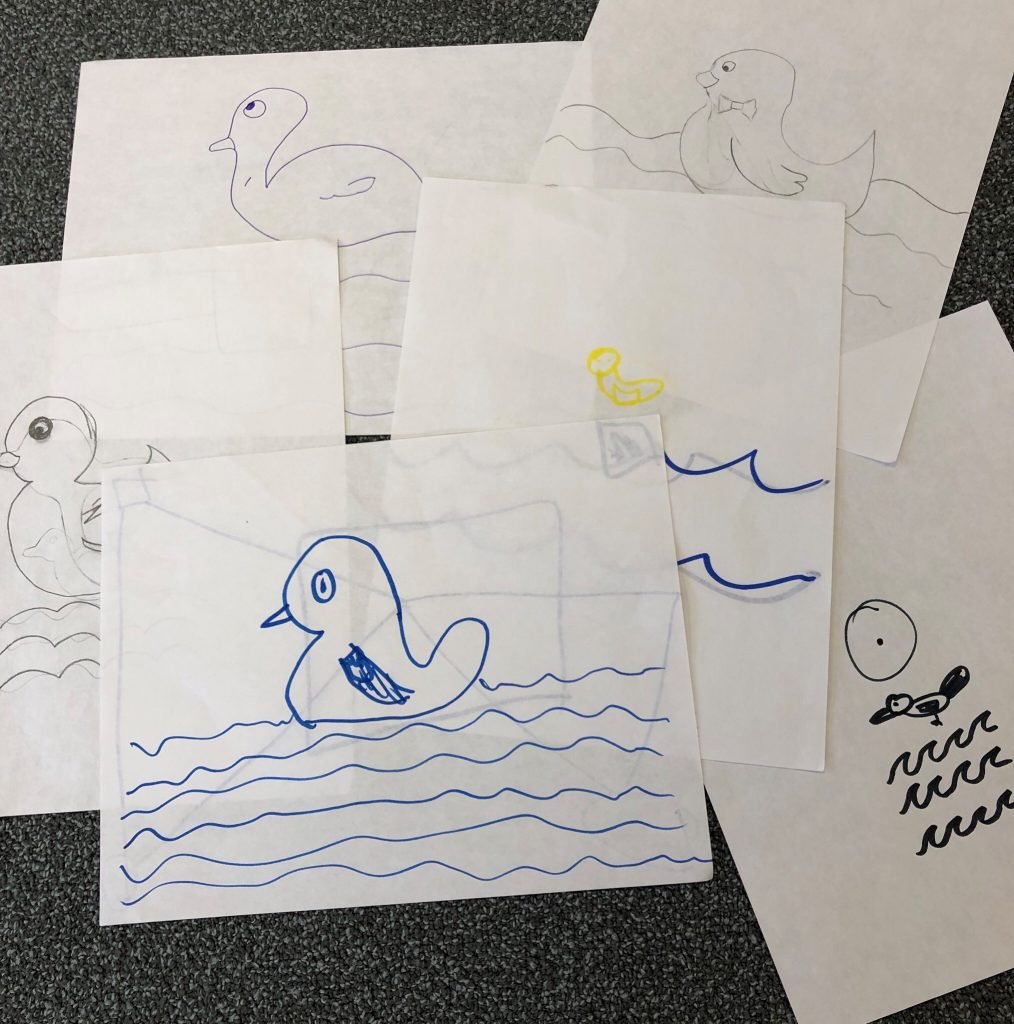There’s a show that the PAVE (Peers Against ViolencE) Peer Leaders (a violence prevention club at Waltham High School) have told me about called “What Would YOU Do?” The premise is that actors act out a scenario and a hidden camera films people to see how they respond. Scenarios could include someone saying a discriminatory comment to a passerby, someone stealing an item from a store, or someone using an abusive tactic against their dating partner. People respond, intervene, or don’t respond in many different ways.

PAVE Peer Leaders doing an activity called “Partner to Partner” where they enact/practice consent.
In my role as Youth Education Specialist for REACH, I’ve been doing a version of “What Would YOU Do?” at the end of my time in middle and high school classrooms lately. I’ll say something like “If [blank] happened, what would you do? How would you help a friend?” It switches up the lesson, allows students to express themselves, and requires them to examine their strengths and skills.
In one school I had used a hallway fight as an example and heard many versions of “it’s not my business,” “it’s not my responsibility,” and “it’s not physical, so it’s not a problem.” Those responses are not uncommon. However, we had spent multiple days learning about how abuse can take many forms, all of them serious. These seemingly dismissive comments illustrated a jarring disconnect between the students’ knowledge and what they would actually do – their behavioral intent.
After building knowledge and awareness, behavioral intent was not present. Yes, they could recite back the information we had shared about abusive behavior, but that didn’t seem to impact what would actually happen if (and potentially when) this happens in their life, or the life of someone they know and care about.
That prompted me to ask the perennial question – we have knowledge, so now what? – a question that has lately informed our classroom work with youth.
This is where skill-based education comes in. Experiential learning that focuses on skills and attempts to change behavior, one of the ultimate goals of violence prevention work.
This winter we worked with Wayland Middle School to focus on the “so now what?” question. Together we restructured our curriculum to focus more on social-emotional learning taught through skill-based, experiential lessons. In other words, we helped students learn how to interact with others (and with themselves). They practiced skills that they can use in all types of relationships. Education in this form involves positive risk-taking, critical thinking, and action. Students don’t just say “I’ll do this” – they practice doing it.

In Wayland, each grade focused on different skills that help build healthy relationships. In 6th grade we explored communication, boundaries, and empathy in the context of friendships. In 7th grade we focused on conflict resolution, problem solving, and bystander intervention.
In 8th grade, we practiced communicating consent, built awareness of healthy and unhealthy relationships, and developed skills to identify warning signs. At times the lessons may have seemed awkward and silly, but that’s because the students were learning not just what to do, but how to do it.
As an educator in the field of violence prevention, this is a complicated argument for me to make. Yes, I wholeheartedly believe that in order to learn, we need to develop knowledge and awareness. We’ll never not advocate for that. But we have witnessed the need to not just gain knowledge, but to develop skills. To learn about community responsibility. To build a culture of accountability. To enact empathy.
For without action, without behavior, without intent…the knowledge rests dormant. In this field, in this work, in our lives – we need to act. We need to embody knowledge. We need to not just know about domestic violence; we need to reach beyond domestic violence.
February is Teen Dating Violence Awareness Month. Tune in next week to learn how to take action and help the youth in your life build skills that will help them have healthy relationships.





